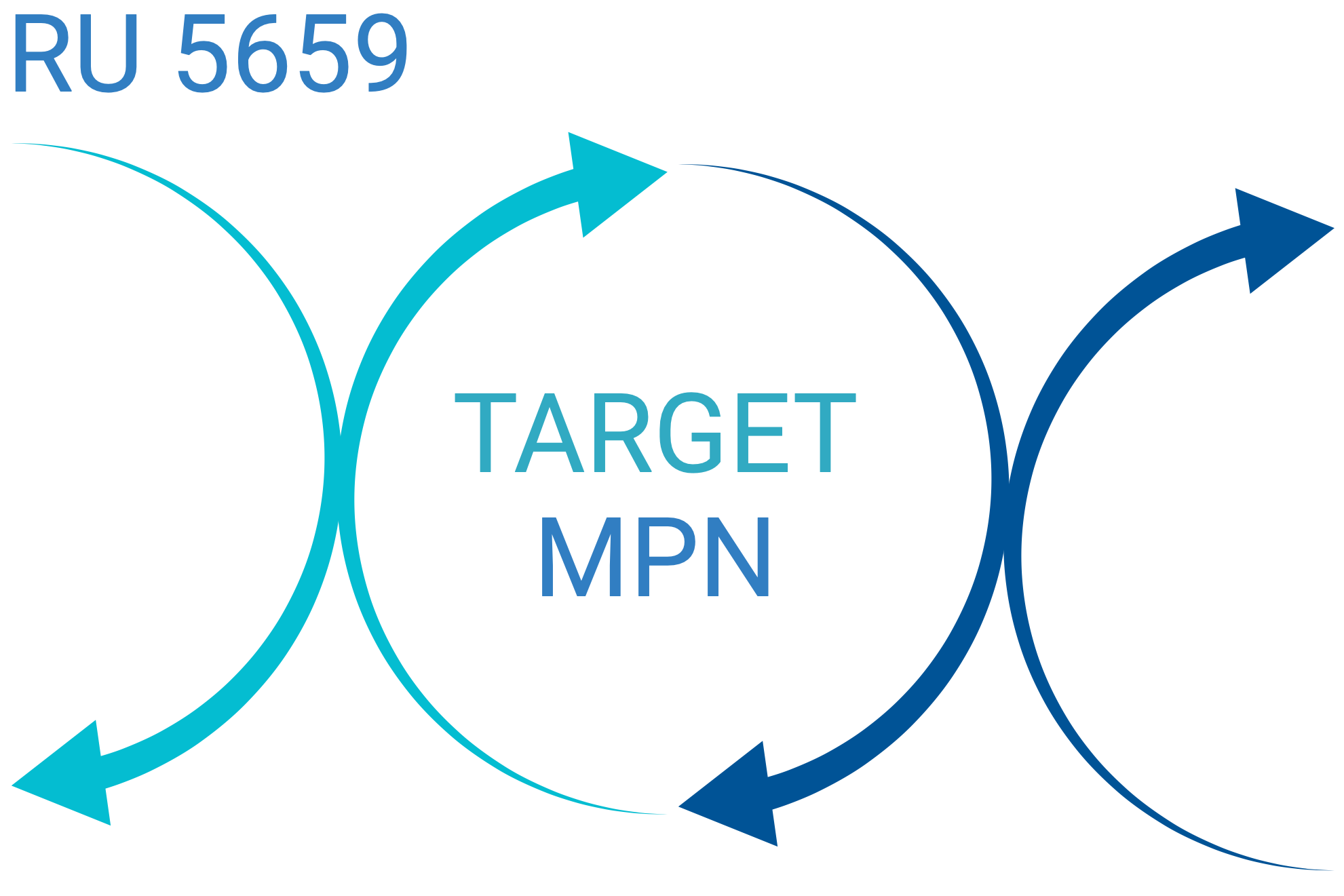Targeting aberrant cell signaling to eradicate persistent MPN cells
In this proposal, our objective is to expand our analyses beyond the persistence landscape of Jak2- mutated cells and to encompass all pertinent driver mutations in MPN. By doing so, we seek to identify and compare the specific dependencies of Jak2-, thrombopoietin receptor (Mpl)- and calreticulin (Calr)-mutated cells, thereby identifying unique dependencies evoked by the three MPN driver mutations.
While the knowledge of activated signaling pathways has provided valuable insights into disease mechanisms, it has been limited in terms of comprehensively understanding the complex signaling processes within the biological system. Particularly relevant is the significant absence of comprehensive and systematic investigations on a global scale that thoroughly examine the cell intrinsic downstream signaling pathways or post-translational modifications, which are of utmost importance for understanding and addressing MPN pathophysiology.
Based on the current state-of-the art, we hypothesize that aberrant cell signaling in MPN is responsible for disease persistence and evolution through deregulation of oncogene-dependent and -independent pathways. To uncover the downstream effectors that may be responsible for the persistence of MPN cells, we have generated murine cell line Ba/F3 stably harboring a Jak2, Mpl, or Calr mutation and utilizing state-of-the-art mass spectrometry technology, and we performed an ultra-deep proteome profiling. We identified a total of nearly 7000 proteins and quantified 6315 of these with an average of 5800 proteins in all the samples. By this, we provided preliminary data that further characterization of the signaling in mutant MPN cells could identify novel targets to overcome disease persistence and evolution.
Therefore, to characterize relevant MPN signaling pathways, we will investigate changes in the global proteome as well as the phospho-proteome in murine and primary patient cells (peripheral blood granulocytes) followed by perturbation and functional characterization of deregulated molecules and cellular functions. Overall, we aim:
To characterize the signaling landscape and thereby identify specific dependencies evoked by MPN driver mutations.
To explore the MPN driver mutations’ differential influence on cellular signaling pathways.
To investigate the functional importance of the differentially activated signaling pathways that affect persistence of MPN.
To validate selected candidates as therapeutic targets in MPN.


